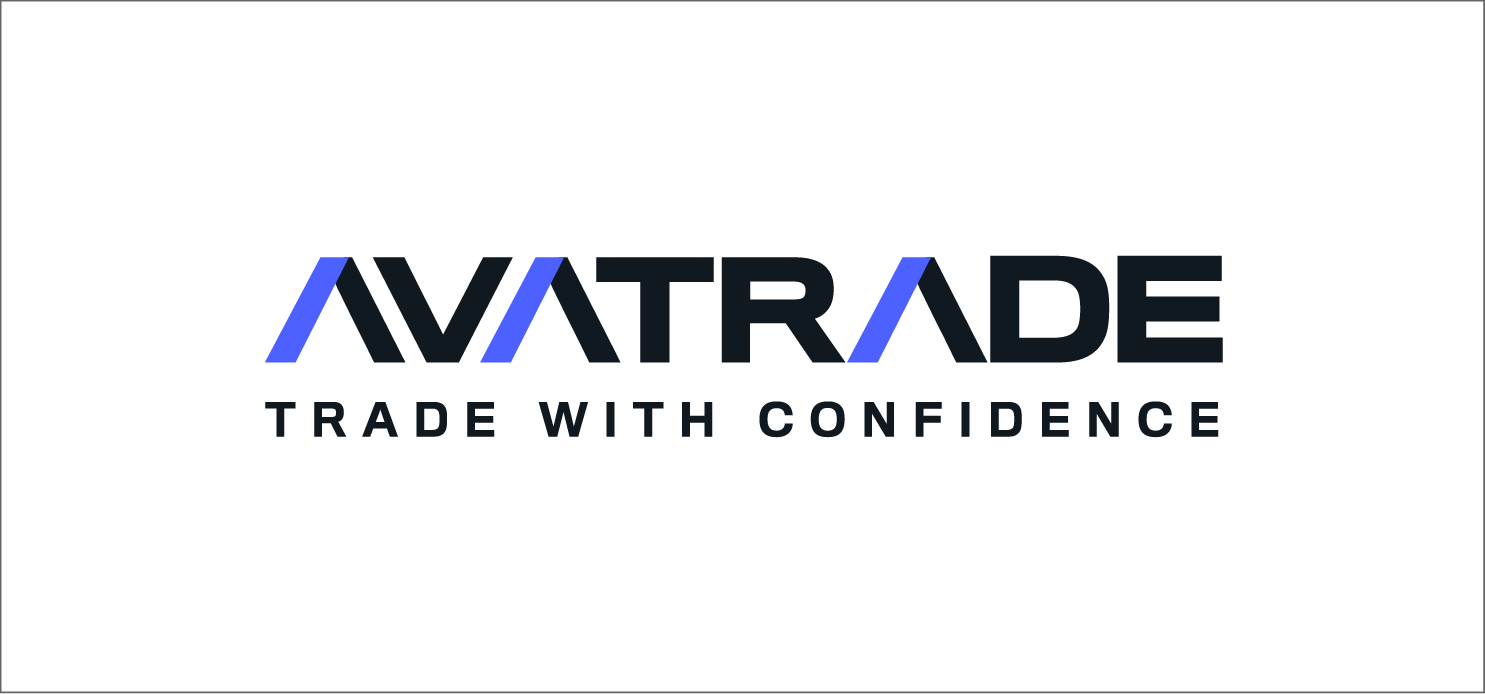Best 6 Stockbrokers in Australia (2026 Review)
All products and services featured are independently selected by WikiJob. When you register or purchase through links on this page, we may earn a commission.
- A list of the Top Stockbrokers in Australia for January 2026:
- Comparison Chart of the Best Stockbrokers in Australia for January 2026
- Description of the Best Stockbrokers in Australia for January 2026
- What Is a Stockbroker?
- What Are the Different Types of Stockbrokers?
empty
empty
empty
- How Do Stockbrokers Make Money?
- Are Australian Stockbrokers Regulated?
- How to Choose an Australian Stockbroker in 2026
- Frequently Asked Questions
- Final Thoughts
As more people realize that you do not need piles of money to start investing, stock trading platforms are doing what they can to attract new customers.
To help you start investing, we are taking a look at how to find the right Australian stockbroker for you.
A list of the Top Stockbrokers in Australia for January 2026:
Comparison Chart of the Best Stockbrokers in Australia for January 2026
Regulation ASIC, FCA, DFSA, SCB, CMA, BaFIN, CySEC | Platforms CFDs (Forex, Cryptocurrencies, Commodities, Stocks, ETFs, Indices) | Minimum Deposit None | |||
Regulation ASIC, CySEC, FCA | Platforms Stocks, Cryptocurrencies, ETFs | Minimum Deposit $50 USD for Australian users | |||
Regulation ASIC, FSCA, FSA, BVI FSC, Central Bank of Ireland | Platforms Forex, Cryptocurrencies, Stocks | Minimum Deposit Varies | |||
Regulation ASIC, FCA, CFTC, NFA, MAS | Platforms Forex, Cryptocurrencies, Stocks, Indices, Commodities | Minimum Deposit Varies | |||
Broker Switch Markets | Regulation ASIC | Platforms Forex, Cryptocurrencies, Commodities, Indices | Minimum Deposit $50 | ||
Regulation ASIC, FCA, KNF, CySEC | Platforms Forex, Cryptocurrencies, Indices, Commodities | Minimum Deposit Varies |
eToro AUS Capital Limited AFSL 491139. eToro is a multi-asset investment platform. The value of your investments may go up or down. Your capital is at risk.
Description of the Best Stockbrokers in Australia for January 2026
Now that we have covered what a stockbroker is and how to choose one, here is a review of the 6 best stockbrokers in Australia.
This list provides a brief description of the different brokers to help assist you in your research.
It is important to remember that this is not a definitive list and should not be considered financial advice.
Before making your final decision, ensure you have conducted further and more substantial research.
All prices and values are in US dollars unless specified as A$, which represents Australian Dollars.
1. Pepperstone
Pros
- Extensively regulated
- No minimum deposit
- Low fees and mostly free withdrawals
- Good customer service
Cons
- No investor protection for clients outside UK, EU and EEA
- Withdrawal fee for international bank wires
- CFDs only
Best for: Low fees, low spreads and high-speed trading
Minimum deposit: $0
Withdrawal fee: No withdrawal fees for standard bank withdrawals
Tradable assets: Forex and CFD trading
Pepperstone is an Australian-based forex and CFD broker, specializing in providing online trading services for forex, commodities, indices and cryptocurrencies.
While Pepperstone primarily focuses on forex and CFD trading, it's important to note that it is not a traditional stockbroker that deals with stocks listed on stock exchanges.
Instead, Pepperstone offers trading in various financial instruments through its online trading platforms.
Pepperstone is regulated by the Australian Securities and Investments Commission (ASIC) in Australia, which ensures that the broker operates in compliance with financial regulations and industry standards.
It's worth mentioning that Pepperstone's services are centered around forex and CFD trading, rather than traditional stock trading. If you're specifically interested in trading stocks, you might need to look for a different type of broker that specializes in stock trading.
2. eToro
Below content does not apply to US users.
Pros
- Regulated by FCA, ASIC
- Social and copy trading
Cons
- More expensive than most of its competitors
- No MetaTrader platforms
Best for: Social trading
Minimum deposit: $50
Withdrawal fee: $5
Tradable assets: Stocks, EFT, cryptocurrencies
Number of stocks: 2,000+
eToro is an Israeli fintech company that has been operating since 2007.
eToro is available for traders in various countries, including Australia. Australian residents can access eToro's trading platform and trade a variety of financial instruments.
It's important to note that eToro operates under different regulatory frameworks in different regions.
In Australia, eToro is regulated by the Australian Securities and Investments Commission (ASIC), which oversees financial services providers to ensure compliance with regulations and industry standards.
eToro excels at social trading with over a million users, highly active social feeds and up-to-date public trading profiles.
Its innovative CopyTrader feature allows users to see what other, more experienced traders are doing in real-time.
It also automatically copies their trades to your portfolio. This is ideal if you are new to trading or do not have the time to manage your portfolio.
To find out more, read our eToro review.
eToro AUS Capital Limited AFSL 491139. eToro is a multi-asset investment platform. The value of your investments may go up or down. Your capital is at risk. See PDS and TMD.
3. AvaTrade
Pros
- Worldwide regulated
- Multiple platforms – MT4, MT5, etc.
- Negative balance protection
- 20% welcome bonus
- Educational content
- Wide rage of payments methods
- Fixed spreads
Cons
- You can’t buy stocks
- Quarterly and annual inactivity fees
- Custumer support is not available 24/7
- No bonus for EU based clients
- No US clients accepted
- Imitated crypto assets
Best for: Diverse range of instruments
Commission: No direct commission on trades
Minimum deposit: Around $100 to $250
Withdrawal fee: No withdrawal fees for standard bank withdrawals
Tradable assets: Forex currency pairs, commodities, indices, stocks, cryptocurrencies and more
AvaTrade has been operating since 2006.
AvaTrade is internationally recognized and offers +1,000 financial instruments for trading, including forex, stocks, commodities, indices, cryptocurrencies, and more.
The broker has a presence in multiple countries, and its services are accessible to traders in Australia.
AvaTrade is regulated by the Australian Securities and Investments Commission (ASIC) in Australia. Regulatory oversight by a reputable authority adds to the broker's credibility and provides a sense of security for Australian traders.
4. IG
Pros
- Highly regulated
- MetaTrader 4 (MT4)
- Over 10,000 instruments
- Available in the UK and US
- 24/7 customer support
Cons
- High fees
- No deposit compensation scheme for US accounts
- No copy trading
- Inactivity fees
Best for: Active traders
Commission: Spread-based pricing model
Minimum deposit: Around £250 GBP or its equivalent in other currencies
Withdrawal fee: No withdrawal fees for standard bank withdrawals
Tradable assets: Forex currency pairs, commodities, indices, stocks, cryptocurrencies, and more.
IG invented spread betting in 1974 and today is the world’s leading online trading provider with more traders trusting them with their money than anyone else.
AvaTrade is regulated by the Australian Securities and Investments Commission (ASIC) in Australia. Regulatory oversight by a reputable authority provides a sense of security and trust for Australian traders.
AvaTrade's global presence and recognition contribute to its popularity, as traders may be drawn to well-established international brokers.
IG provides traders access to over 18,000 markets. IG offers more 24-hour indices than any other provider, and extended hours on over 70 key US stocks.
Based on revenue (published financial statements, October 2022). 24/7 excludes the hours from 10 p.m. Friday to 8 a.m. Saturday (UK time), and 20 minutes just before the weekday market opens on Sunday night.
For those who prefer to own the underlying asset, IG offers access to over 13,000 global shares and ETFs, or a wealth portfolio managed by one of their experts.
Benefits:
- Advanced platform and charting – L2 dealer, ProRealTime and MT4
- Demo account
- Extended trading hours
- Extensive range of products
- Daily expert analysis & educational resources
- Round-the-clock customer service
- Negative balance protection for retail clients
5. Switch Markets
Pros
- Regulated by ASIC
- Low minimum deposits
- No deposit fee
- No inactivity fee
- Free VPS
- Social trading
- Tight spreads
- Useful trading tools and research
Cons
- Not FCA regulated
Best for: Education
Commission: 0%
Minimum deposit: $50
Withdrawal fee: None
Tradable assets: Forex, majors, minors and exotics, metals, Indices, CFD shares, digital currencies
Number of stocks: 80 CFDs
Founded in 2019, SwitchMarkets.com styles itself as 'the place traders come to trade', and with an enormous range of trading instruments available through MetaTrader 4 and a proprietary platform, SwitchMarkets.com has a lot to offer to Australian traders.
The parent company of SwitchMarkets.com (Royal ETP) is regulated by ASIC and CySEC as well as some other lower-tier jurisdictions, while client funds are segregated in Tier 1 banks – which makes it more secure.
With SwitchMarkets.com you can trade:
- 62 Forex pairs
- 8 metals
- 21 indices
- 80 share CFDs
- 4 cryptocurrencies
There are just two account types available, which makes getting started a breeze – you can decide to go for a Standard account that offers zero commission and spreads as low as 0.6 pips, or a Pro account which has spreads from 0.0 pips and a $7 per lot round turn commission instead. Each account has a minimum deposit of just $50.
For international traders, and those that want flexibility in both deposits and withdrawals, there are multiple options – from the usual credit and debit card to PayPal and eWallets like Neteller and Skrill, for example. Deposits and withdrawals are simple, fast and free.
The education available on the platform is also simple – several ‘cheat sheets’ covering all you need to know about trading, from terms to strategy, all in downloadable PDF formats and all for free.
There are several tools available on the platform to improve your trading strategy, including a Market Heat Map, lot size and Forex profit calculators, and even EA tools.
As a relatively new broker, traders will find many offers to entice them to sign up – from a free VPS to a credit bonus.
6. XTB
Pros
- Regulated by the FCA
- Low forex fees
- Fast withdrawal and deposit with no fee
- Live chat customer service
Cons
- Limited product portfolio
- High fees for stock CFDs
Best for: Forex trading
Commission: Fees included in the spread
Minimum deposit: $0
Withdrawal fee: $5
Tradable assets: Stocks, EFT, forex, CFD, cryptocurrencies
Number of stocks: 1,000+
XTB offers trading services to clients in various countries, including Australia.
Australian residents can access XTB's trading platform and trade a range of financial instruments, such as forex, indices commodities, and more.
For Australian clients, XTB is regulated by the Australian Securities and Investments Commission (ASIC), which ensures that the broker operates in compliance with financial regulations and industry standards.
XTB's forex fees are very competitive; however, stock CFD fees are higher than some competitors.
It offers multiple withdrawal options and educational material; but lacks fundamental data and offers limited research tools.
CFDs are complex instruments and come with a high risk of losing money rapidly due to leverage. 69-80% of retail investor accounts lose money when trading CFDs with this provider. You should consider whether you understand how CFDs work and whether you can afford to take the high risk of losing your money.

What Is a Stockbroker?
A stockbroker is someone who buys and sells stocks on behalf of someone else.
This could be on behalf of an individual or an organization such as a hedge fund.
Stockbrokers work in one of three ways:
- Discretionary – Whereby they take over the complete management of the portfolio and make decisions on the client's behalf.
- Advisory – Here, they can offer suggestions and advise on the best course of action, but they cannot make any trades without their client's authorization.
- Execution-only – The stockbroker does not offer any advice. They simply make the trades and investments they are told to.
What Are the Different Types of Stockbrokers?
As the stock markets can be complex and difficult to understand, you must first learn the different types of stockbrokers operating in Australia:
Full-Service Brokers
As the name suggests, full-service brokers do everything to make your investing experience as easy as possible.
They will make suggestions, offer advice, and action trades and investments on your behalf.
Full-service brokers also provide detailed financial reports detailing your portfolio's performance.
Discount Brokers
Discount brokers are more affordable than full-service brokers and only make trades when their clients want them to.
They often do not offer any advice, so you still need to manage your finances and do your research.
Online Stockbrokers
Online stockbrokers are increasing in popularity as you can make investments and manage your portfolio anywhere and at any time from your mobile phone.
They sometimes offer educational material and data analysis tools.
These types of brokers are for beginners and experienced traders.
How Do Stockbrokers Make Money?
Stockbrokers make money by charging a commission, subscription fees, or additional fees for different investments, trades and management levels.
Are Australian Stockbrokers Regulated?
Australian stockbrokers are regulated under the Australian Securities and Investments Commission (ASIC).
It acts under the Parliamentary Secretary to the Treasurer and regulates all Australian companies, financial markets, and financial services organizations and professionals who advise on:
- Insurance
- Superannuation
- Investments
- Credit
- Deposit-taking
Its role is to:
- Facilitate and improve Australia's financial system's performance
- Promote informed investor participation
- Enforce the law efficiently and effectively
- Make important information publicly available as soon as possible
How to Choose an Australian Stockbroker in 2026
Step 1. Know What You Need
Before researching, make a list of everything you want from your stockbroker.
If you are a beginner, you might want educational material and easy-to-use software and analytical tools.
More experienced traders may want the best data and research tools.
Establish where you are in your trading journey and decide what features will benefit you now.
You should also consider if you want a platform with social copy trading.
Step 2. Listen to Other Investors
Read online reviews and seek the opinions of investors that have used the platforms before.
Consider that what is difficult for them to use could be easy for you; therefore, find as many opinions as you can to further your understanding.
Step 3. Is the Stockbroker Regulated?
The Australian regulator is ASIC.
If your stockbroker is regulated, it will share those details on its website.
Alternatively, you can search the ASIC database.
When looking at the safety of a broker, the most reliable have been trading for at least two years or have survived a recession.
If the broker is outside Australia, check if it is regulated by a Tier one reputable country such as the UK.
Step 4. What Assets Does It Trade?
In addition to stocks and shares, many brokers now trade forex and cryptocurrencies.
Using a stockbroker with multiple tradable assets allows you to diversify your portfolio and maximize your investments.
Step 5. Check Which Trading Platforms Are Available
A trading platform is software designed for investors to make trades.
Some platforms are very easy to use with modern interfaces. Others are more dated and simpler.
There may also be different charges or subscription options for the different platforms available.
Step 6. Find Out the Withdrawal Amount?
Check the maximum amount you can withdraw in a single transaction, as well as how you can withdraw and what the fees are.
The average transfer time should be two or three days.
Stockbrokers that make withdrawals difficult may not be trustworthy.
Step 7. What Is Its Customer Service Like?
There is no excuse for poor customer service in today's age. Dedicated software allows businesses to reach their customers in a variety of ways.
If you need tech support, find a broker with 24/7 help via telephone or live chat.
Regardless of how much support you need, the broker should have at least two ways you can communicate with it, and it should respond within two working days.
Step 8. Find Out What Its Platforms Offer
It is easy to get drawn to stockbrokers with introductory offers, but look at what it provides beyond that.
Find what educational materials it has. Some brokers have limited materials, while others have webinars, podcasts and demo accounts.
You should also assess its research and data tools. Not every broker offers fundamental data, yet it is a valuable tool for analysis.
Deciding what educational and research tools you have to have will help you narrow your choices.
Superhero is a great stockbroking firm to trade and invest in Australian shares. It is a low-cost broker choice and it is tailored towards the needs of most retail investors.
On Superhero, you can trade with a little as $5 brokerage and you do not have to pay anything extra on US trades.
CommSec is also a great shared trading platform that allows users to trade with ETF, forex, direct debit and CFD. It has great educational tools and is user-friendly for traders of all levels.
The use of forex has become more popular in trading because of the internationalization of trading markets. The use of different currency exchanges can suit traders all across the world.
FP markets is a well-established finance broker based in Sydney. It has fantastic service reviews and has developed a strong reputation in the forex trading market.
Traders have access to more than 10,000 stocks across the global exchange market and they can trade in a range of commodities including minerals and oil.
A trading assistant works alongside a broker in a supporting role. Their job is to research any investment proposals and to aid the decisions of a senior sales trader.
An execution trader is someone who places trades at the discretion of others. They must carry out the trade that is directed either by an advisor or a computerized mechanism. Execution traders are often found in hedge fund trading positions.
To become a successful stock broker you will need a university education in commerce, financing, economics or anything with accountancy as the main point of study.
You will also need first-hand vocational experience and a training qualification known as a VET.
Depending on the types of stocks you want to broker with, you may need a license as well. A good trading portfolio will also help you become a successful stock broker.
There is a list of brokers who have $0 brokerage fees. These include eToro, CMC Markets, Stake and Superhero.
If you are looking to broker primarily with international and US markets then eToro is the best trading broker for this type of trading.
If you are looking to exclusively trade with Australian shares then Superhero has the lowest brokerage fees.
Even though you do not need a broker to invest in shares, a share trading platform is technically considered a broker.
If you do not want the personal interaction that you would have with a broker, there are a few ways you can still invest. You can still invest in initial public offerings (IPOs).
Another way to trade without a broker is to invest in a managed fund. Managed funds are a list of multiple company stocks that you can monitor by yourself. If you work for a company or corporation, you may also be able to invest in company shares as part of your contract.
Robinhood is known for being a cost-effective app you can use either from your tablet or mobile device.
At this moment in time, Robinhood has not launched an app for use in Australia.
Most trading platforms and investment apps are tailored towards beginners' use. Many of them have assistive tools you can use to invest and tutorials you can use to educate yourself on how to trade effectively.
The trading platform Sharesies is great for beginners because it has no minimum investment, meaning you can invest a few dollars each time. There is little financial risk to using Sharesies. It also has very low brokerage fees and users get access to international stock trading. This means that users can use Sharesies to get comfortable with trading before entertaining other trading platforms.
To find the cheapest stock broker in Australia, you need to find one that has little to no brokerage fees. No brokerage fees mean you will not be charged for investing in any shares.
eToro, IG, CMC Markets and Superhero all have no brokerage fees. These trading platforms are some of the most cost-effective ways in which you can begin investing.
Final Thoughts
As you can see, there are many things to consider before choosing an Australian stockbroker.
Each online broker has its pros and cons, and what appeals to one person may not appeal to another.
The eToro platform always features related articles across the web. It has an attractive interface and enough features to suit all trading levels.
eToro AUS Capital Limited AFSL 491139. eToro is a multi-asset investment platform. The value of your investments may go up or down. Your capital is at risk. See PDS and TMD.
The CopyTrader feature is particularly popular as it allows traders from all over the world to connect and learn from each other.
Before making your final decision, we recommend that you spend time working through this list, comparing it with others and taking advantage of the free demos.
Reputable stockbrokers will allow you to set up a virtual account with fake money. Use these accounts to test your trading strategy and all the platform features, including customer care and trading/non-trading fees.
There is no limit to the number of brokers you can open accounts with; therefore, try as many as you like and until you find a platform that works for you.
You should continue using a demo account until you are confident you are ready to invest your own money. These signs will indicate if you are ready to live trade.
WikiJob does not provide tax, investment or financial services and advice. The information is being presented without consideration of the investment objectives, risk tolerance, or financial circumstances of any specific investor and might not be suitable for all investors. Past performance is not indicative of future results. Investing involves risk including the possible loss of principal.












